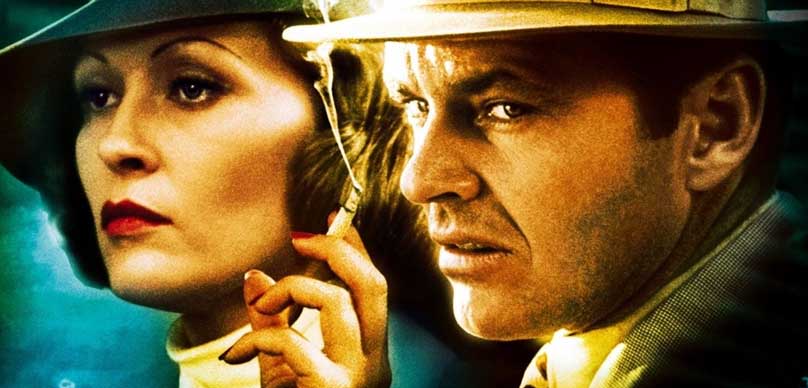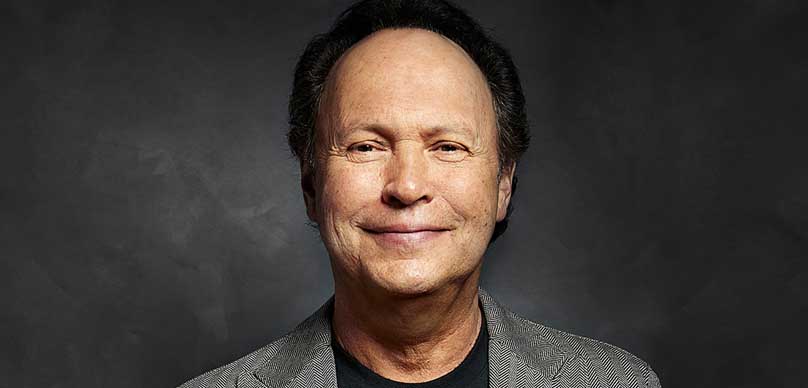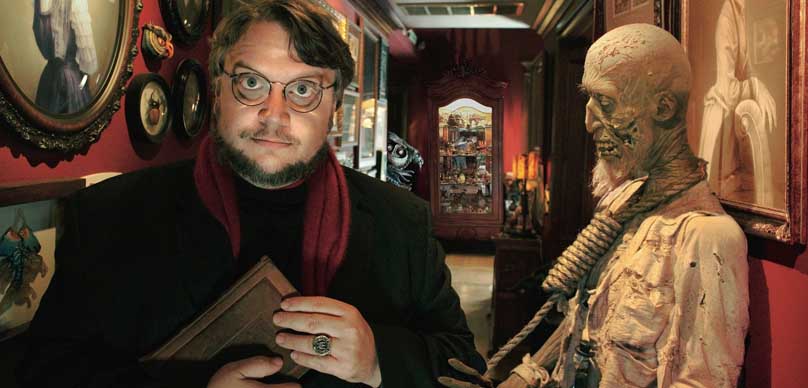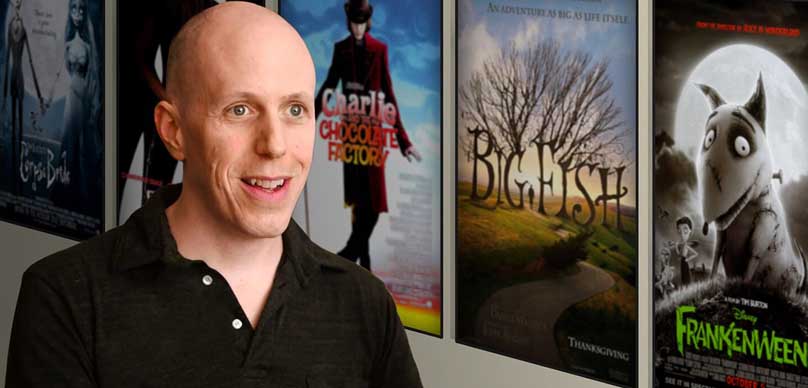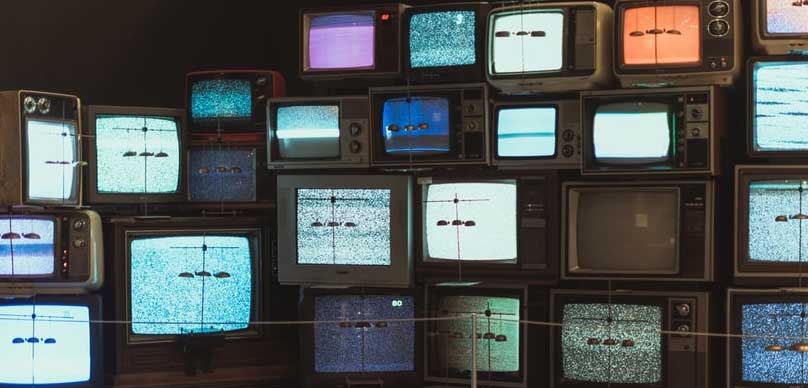MIMIC (1997)
Screenplay by Matt Greenberg & Guillermo del Toro – Read the screenplay!
HELLBOY (2004)
Screenplay by Guillermo del Toro – Read the screenplay!
PAN’S LABYRINTH (2006)
Screenplay by Guillermo del Toro – Read the screenplay!
HELLBOY II: THE GOLDEN ARMY (2008)
Screenplay by Guillermo del Toro – Read the screenplay!
THE HOBBIT: AN UNEXPECTED JOURNEY (2012)
Screenplay by Guillermo del Toro, Peter Jackson, Philipa Boyens, & Fran Walsh – Read the screenplay!
Guillermo del Toro: The Master of Monsters
Guillermo Del Toro happens to fall in the category of those lucky filmmakers like Hitchcock, who came about on such a popular genre which suited his oldest and deepest obsessions – the things which he never forgot about. Although the preoccupations of Hitchcock are bit mature and grown up but just a tinge where all the worries of guilt, sex and the fear of getting punished are all mixed up together and surface clearly in the form of thriller.
Horror genre is for those whose sense of fear is more ancient or less ordinary. For those who never outgrew their faith and belief that the universe is filled with infinite mysteries and secrets which is a source of terror and fascination both. Horror exists for the people like Guillermo del Toro.
Work done by Guillermo Del Toro is branded by a solid connection to horror and fairy tales with the added flavor of visual or poetic beauty. Del Toro has been fixated with monsters since forever which according to him are symbols of incredible power.
Born in Guadalajara, Mexico on October 9 1964, Guillermo Del Toro was raised in a strict Catholic household. At eight years of age, young Del Toro had begun toying with his father’s Super 8 camera and made short films with the toys he had of Planet of the Apes amongst others. He had a taste for macabre since an early age and one of his short centered on a serial killer potato which aimed to rule the world, it murdered his brothers and mothers before he left home and met an unfortunate accident with a car resulting in its crushing.
Del Toro made short films in high school and later on attended film school Centro de Investigacion y Estudios Cinematograficos. He made about 10 short films before his first feature Matilde. He also has written four episodes and directed five of theLa Hora Marcada, a cult series with Emmanuel Lubezki and Alfonso Cuaron.
Studying special effects and makeup with Dick Smith, a special effects artist, Del Toro spent ten years as a special effects makeup designer and in the mid of 80s, he had formed his own company Necropia. Del Toro also happened to have co-founded the Guadalajara International Film Festival. Formation of his own production company, The Tequila Gang was followed later in his directing career.
The first feature debut by Guillermo Del Toro Cronos,came in 1993 which was a Spanish/English film. The plot was about owner of an antique’s shop who starts to go through a surprising vampiric transformation upon coming across a glided device with his granddaughter witnessing all of it. Starring Ron Perlman ( a regular collaborator with Del Toro) earned numerous honors which included 8 Ariel Awards from the Mexican Academy of Film.
At the age of 33 in 1997, Guillermo was granted a $30 million budget for a movie Mimic from Miramax Films. It starred Mira Sorvino and Josh Brolin in a story of enormous bugs set loose in New York City. The project however soured him slightly on doing his work in the limits of Hollywood. Thus for his next feature film, he opted for Spanish history. Co-produced with a fellow filmmaker Pedro Almodovar, The Devil’s Backbone (2001) was a stark and somber tale which focused on a group of children who were struggling to survive during the Spanish Civil War at a haunted orphanage.
Guillermo Del Toro’s next directing venture continued into world of horror and though the adaptations were from the comic book world, there were also a return of the vampires. Del Toro gained great success at Blade II which starred Wesley Snipes as the renowned vampire hunter at its full gory and action and grossed more than $150 million worldwide.
Del Toro’s other comic book adaptation Hellboy starred Perlman as the burly, demonic titular personality in a journey which was both action and comedy. This was also seen with the sequel Hellboy II: The Golden Army.
Two of his historic horror films were set in Spain and Spanish Civil War was the setting under the authoritarian law of Francisco Franco. Guillermo Del Toro’s these two movies The Devil’s Backbone and Pan’s Labyrinth are most critically acclaimed.
Pan’s Labyrinth (2006) was the story of a girl who is forced to live with his fascist stepfather and how she retreats into a world of magic and frights where she happens to be a princess. It was a blurring mix of reality versus an imaginary escape from the terror and trauma. Pan’s Labyrinth grossed $80 million worldwide being the top grossing foreign releases in the U.S. Earning many reviews it received Oscar nomination for Best Foreign Language Film and as well as five other nominations and ended up winning for Best Art Direction, Best Makeup and Best Cinematography.
Both of these films share the similar setting, themes, protagonists with the famed 1973 Spanish film, The Spirit of the Beehive which is known widely as the finest Spanish films of the 70s.
Guillermo Del Toro has also contributed to Trailers From Hell, a web series. Del Toro was hired by Peter Jackson to direct the live-action film adaptation of J.R.R Tolkien’s The Hobbit in 2008. Due to the delays at hand of MGM’s financial troubles, Del Toro quit in May 2010. He did not direct the films but was credited as a co-writer in The Battle of Five Armies, An Unexpected Journey and The Desolation of Smaug.
Del Toro wrote his first novel, The Strain which was released in June of 2009. The Strain is the first of an apocalyptic vampire trilogy which is co-authored by Chuck Hogan. The Fall, the second part was released in 2010 September. The last part The Night Eternal came in October of 2011. Among his favorites in the non-literary form of vampires, Del Toro refers to writings of Bernhardt J. Hurwood, Antoine Augustine Calmet and Montague Summers.
The December of 2010 brought the launch of Mirada Studios which Del Toro launched with director Mathew Cullen, executive producer Javier Jimenez and long-time cinematographer Guillermo Navarro. It was formed in Los Angeles to be a joint space where other filmmakers including them could collaborate with the artists of Mirada to manifest projects which span digital production as well as content for advertising, television, film and other media. Mirada was launched as a sister company to Motion Theory, a production company.
Based on a screenplay written by himself and Travis Beacham, Pacific Rim was directed by Del Toro which was a science fiction film. The plot is about huge monsters which surface from the Pacific Ocean and create massive destruction attacking major cities and leading the people to fight back with huge mecha suits called Jaegers. Released on July 12, 2013, Pacific Rim made $411 million at the box office.
The pilot episode of The Strain called Night Zero was also directed by Del Toro which had taken the form of a vampire horror television series. Del Toro worked with Hogan and the episode was filmed in Toronto. FX demanded thirteen episodes for the first season in November 2013 and the series premiered in 2014 in July.
Crimson Peakwas followed after the pilot episode of The Strain. Co-written with Matthew Robbins and Lucinda Cox, Crimson Peak was a gothic horror film. According to Guillermo Del Toro, it is a set oriented classic but has a modern take on the ghost story at the same time. The Shining, The Omen and The Exorcist happen to be the influences for this film. The film starred Tom Hiddleston, Mia Wasikowska, Jessica Chastain and Charle Hunnam. Although set to release in April, the studio pushed the date to the 2015 October so that it coincided with the Halloween season.
Guillermo Del Toro was nominated to be on the jury for the major competition section of 2015 Cannes Film Festival. He also starred as Pappy McPoyle in an episode of It’s Always Sunny in Philadelphia.
Starring Sally Hawkins, Michael Shannon and Octavia Spencer, Guillermo Del Toro is currently directing a cold-war drama film titled The Shape of Water.
Del Toro happens to have his hands full with direction of three films for Universal. Frankenstein, a latest adaptation of Slaughterhouse-Five and Drood which is based on a novel by Dan Simmons. According to Guillermo Del Toro, he will be directing Frankenstein only. Del Toro is also in the initial stages of creation of other project called Saturn and the End of Days.
He announced the making of a stop motion film which is based on The Adventures of Pinocchio, an Italian novel which will have music by Nick Cave, Jim Henson Company as the production company and co-directed by Adam Parish King. It is now in the development stages.
The June of 2010 brought about the news that Del Toro would be writing and producing a completely new take on Van Helsing.
A surprise announcement was made by Del Toro at the 2010 Comic-Con that he would be producing, co-writing and may be directing a 3D film for Disney, Haunted Mansion. According to Del Toro, the film won’t have the comedic element like the 2003 version of the film but will focus on the ride’s Hatbox Ghost.
An announcement was made in 2010 July that Del Toro will be directing At the Mountains of Madness by H.P Lovecraft produced by James Cameron, for Universal Pictures.
The film was originally to be set up as a DreamWorks project back in the year 2004. And just a month before that, Del Toro stated that the adaptation of Lovecraft may be would not happen at all. And not long after, Cameron approached Del Toro inquiring whether he still wanted to do the movie when he confirmed he did. Both Cameron and Del Toro put forward the idea to Universal which gave them the green signal.
Del Toro has written the book Trollhunters with Daniel Kraus.
Guillermo Del Toro developed a new film version of Beauty and the Beast starring Emma Watson. The producer of famed Crazy, Stupid, Love,Denise Di Novi is co-producing the movie with him which will be releasing soon.
Del Toro confirmed that a film based on DC Comics’ supernatural characters was in process of being written. He also stated that the title will be Dark Universe and will include characters like The Spectre, Swamp Thing and Constantine among others. The completed script was handed over to Warner Bros. for review and it was revealed in December 2014 that the film will be a part of the DC Extended Universe.
Guillermo Del Toro is currently working with HBO to create a live-action pilot which is based on the manga series Monster by Naoki Urasawa. The thriller Midnight Delivery for Universal is to be produced by Del Toro and directed by Brian Kirk. Kevin Costner is rumored to star in this film.
Soon after Cronos, an adaptation of the Christopher Fowler’s novel Spanky was written by Del Toro called the Mephisto’s Bridge. Del Toro also announced in the year 2014 that a sequel to Pacific Rim as well as an animated series for 2017 was to come soon.
Guillermo del Toro is renowned for his themes of Catholicism and celebrating of errors and imperfections, clockwork motifs, dominant lighting in amber tones, special effects and his often teaming with Doug Jones, Federico Luppi and Ron Perlman. He happens to be friends with other Mexican film directors Alejandro Gonzalez and Alfonso Cuaron who are known as The Three Amigos of Cinema.
Del Toro has decorated his family house which is called Bleak House in the suburbs of Los Angeles. It is basically a macabre playhouse of a boy and filled to the brim with horror mementos and include life-size figurines of famous horror creatures like Poe, Lovecraft and of course, Frankenstein. According to Guillermo del toro, Monsters are true family to me to this day. Though born and bred in a Catholic home, he has made horror his religion and is undoubtedly, the master of horror.

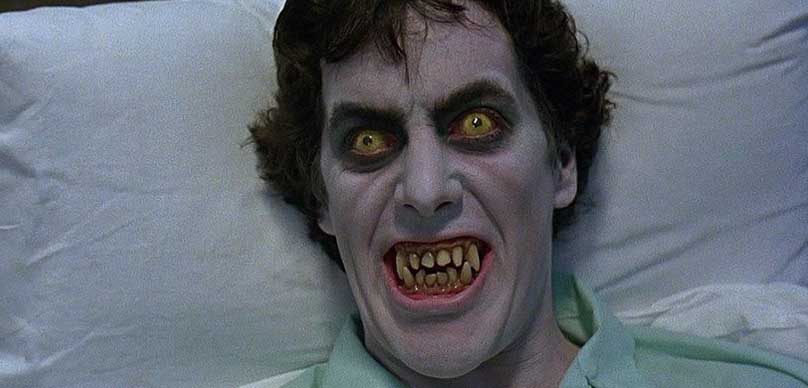
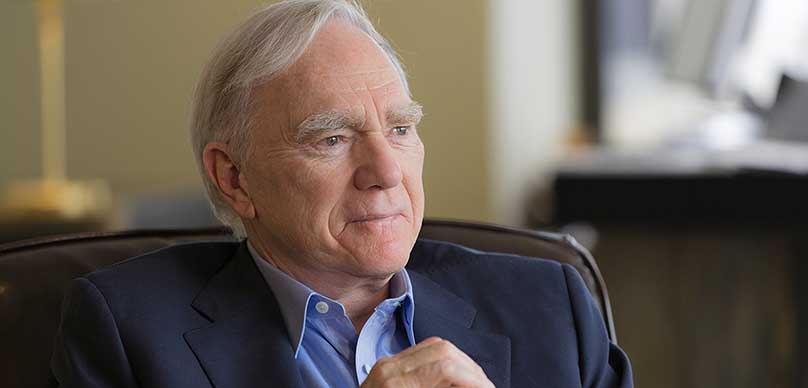
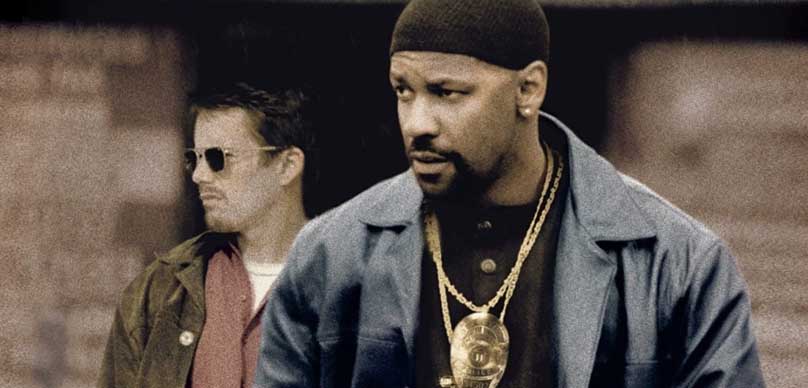
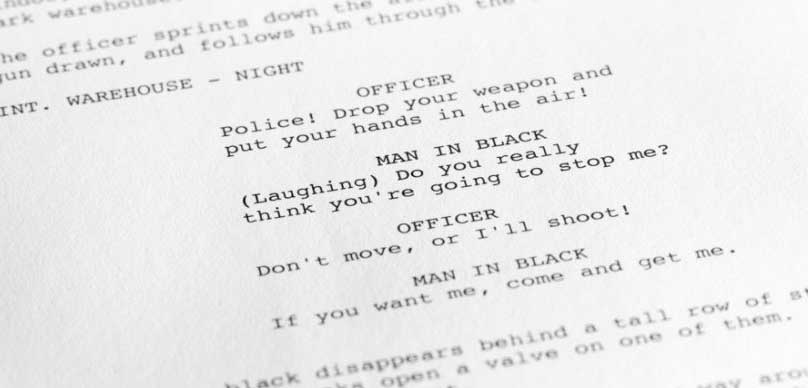
 Julian is a published writer, lecturer, and screenwriting story consultant with extensive experience in scholarly writing.
Julian is a published writer, lecturer, and screenwriting story consultant with extensive experience in scholarly writing.